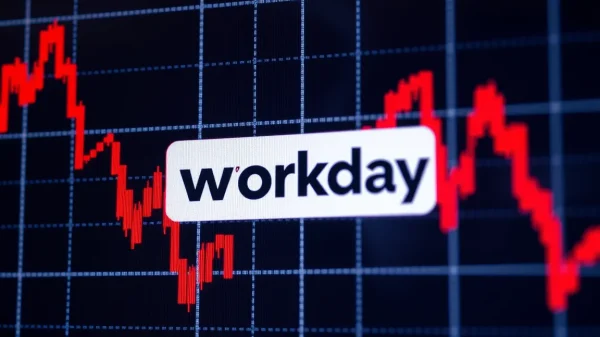According to a Reuter’s report, Germany’s job market has reached a symbolic threshold not seen in a decade, with more than three million people now unemployed.
The Federal Labour Office reported on Friday that the number of jobseekers climbed to 3.02 million in August, an increase of 46,000 from July.
The announcement adds fresh pressure on the government to accelerate its €500 billion investment plans, which are aimed at stabilising Europe’s largest economy.
The rise in unemployment comes alongside disappointing retail sales and higher-than-expected inflation, underlining how multiple headwinds are weighing on German households and businesses.
Jobless numbers climb to 3.02 million in August
The August figures marked the first time in ten years that unemployment in Germany exceeded three million in unadjusted terms. The seasonally adjusted jobless rate, however, stayed at 6.3%, in line with analyst expectations.
Labour demand is showing signs of strain. Job openings fell to 631,000 in August, down by 68,000 compared with a year earlier. Economists have pointed to global uncertainties and the war in Ukraine as contributing factors behind the slowdown.
Labour Minister Baerbel Bas highlighted that “cyclical headwinds continue to leave their mark” on the labour market, adding that government countermeasures are needed.
Inflation rises to 2.1% in August
Germany’s economic pressures are not confined to the labour market. Data from the federal statistics office showed inflation increased to 2.1% in August, up from 1.8% in July.
The rise was sharper than expected and coincides with continued weakness in growth. Economists warn that the combination of rising prices and slower hiring will deepen uncertainty for households already cautious about spending.
Chancellor Friedrich Merz said the government’s focus would be on reforms to boost growth and employability.
Officials believe the planned €500 billion fund for infrastructure will help address structural weaknesses, although economists and business associations caution that it will take years before such spending translates into significant labour market improvements.
Consumer spending contracts as retail sales drop 1.5%
Weak consumption is further compounding Germany’s economic difficulties. Separate figures published on Friday showed that retail sales fell 1.5% in July compared with the previous month. Analysts polled by Reuters had expected a much smaller decline of 0.4%.
The drop in sales indicates that households are saving more, driven by concerns about future job security and inflation.
Economists had hoped that domestic spending would offset weaker foreign demand, but the latest numbers point to continued fragility in consumer confidence.
Calls grow for deeper reforms to address structural problems
Employers’ associations and economists are calling for broader reforms, arguing that government investment alone will not be enough to tackle Germany’s long-term challenges.
Rainer Dulger, president of the BDA employers’ association, said that reaching three million unemployed was “a damning indictment of the refusal to reform in recent years”, and urged a “genuine autumn of reforms.”
Clemens Fuest, president of the Ifo Institute, noted that households are increasingly worried about the future and saving more as a result.
With foreign demand cooling due to tariffs imposed by US President Donald Trump, the slowdown in domestic consumption is further clouding prospects for the second half of the year.
The post Germany unemployment hits 3.02 million in August, highest in a decade appeared first on Invezz
























